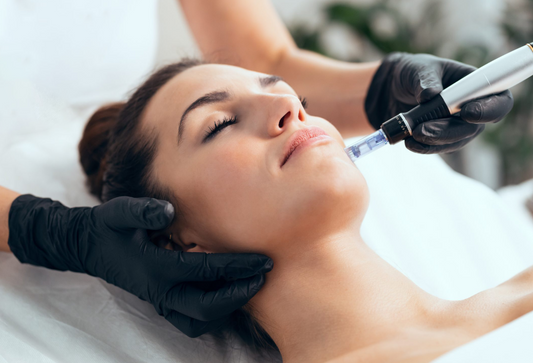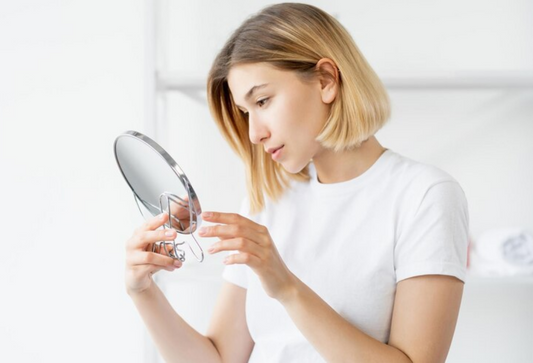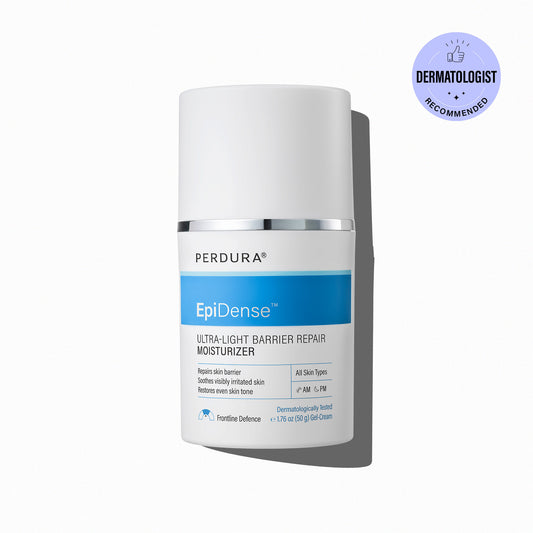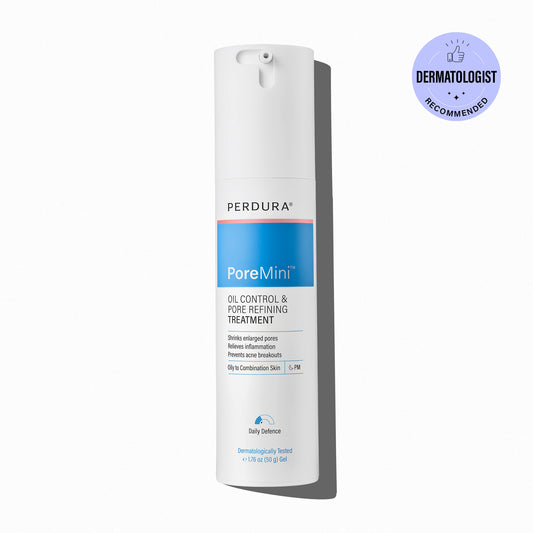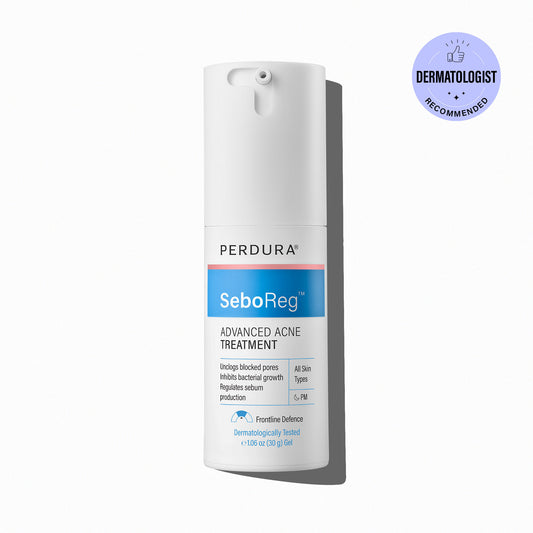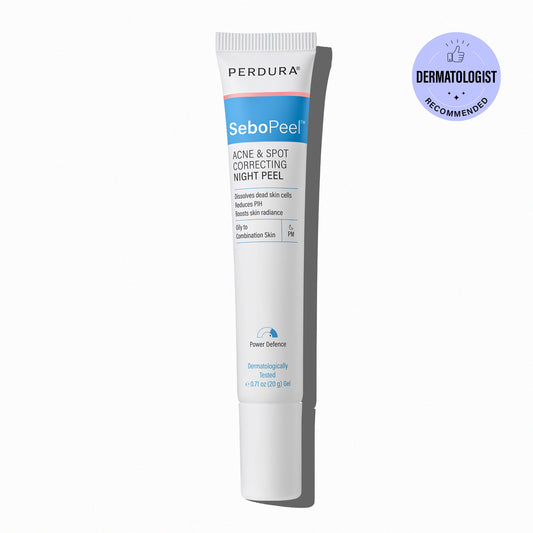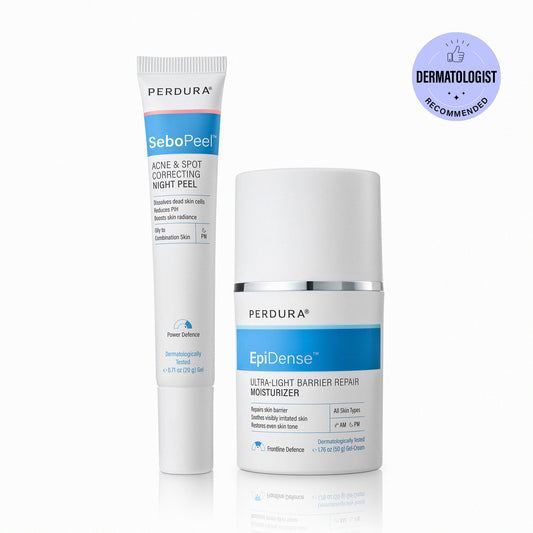Introduction: Choosing the Right Weapons in Your Acne Arsenal
How many times have you found yourself just staring at ingredient lists on countless skincare products, wondering, "Will this finally work?" With shelves overflowing with options for acne-prone skin, choosing the right one to deal with your breakouts can be so overwhelming.
Just like any battle, you need the right tools to fight acne. The key lies in understanding the ingredients themselves. This blog will explore the top 15 ingredients that work well to help acne-prone skin and can help you make informed decisions about the products you choose to develop a targeted approach to managing your breakouts.
The Science of Effective Acne Treatments
Not all ingredients are created equal. Here are the key properties we look for in ingredients to effectively combat breakouts:
- Unclogging Pores: To prevent blackheads and whiteheads, we need ingredients that can remove dead skin cells and unclog pores. This allows your skin to breathe and reduces the environment where acne-causing bacteria thrive.
- Reducing Inflammation: Ingredients with anti-inflammatory properties can help soothe redness and inflammation, making your breakouts less noticeable.
- Fighting Bacteria: Antibacterial agents work to eliminate acne-causing microorganisms preventing future breakouts.
- Controlling Oil Production: Ingredients that regulate sebum (oil) production ensures that your skin is less prone to breakouts.
Top 15 Ingredients for Acne Prone Skin
1. Salicylic Acid
Salicylic acid, a beta-hydroxy acid (BHA), penetrates deep into pores to exfoliate dead skin cells and remove excess oil. By breaking down the buildup of sebum and dead skin cells, it helps unclog pores and prevent blackheads and whiteheads.
Need serious acne control? SeboReg unclogs pores and regulates oil production. Find Out How!
2. Benzoyl Peroxide
Benzoyl peroxide kills acne-causing bacteria, particularly Propionibacterium acnes, while reducing inflammation. It also has mild exfoliating properties. It is recommended for moderate to severe acne, especially inflammatory acne.
3. Retinoids (e.g., Retinol, Tretinoin)
Retinoids increase cell turnover, preventing clogged pores and promoting skin renewal. They also reduce signs of aging.
4. Alpha Hydroxy Acids (AHAs) (e.g., Glycolic Acid, Lactic Acid)
AHAs exfoliate the skin's surface, reducing dead skin cell buildup and improving texture. Glycolic acid is known for deep penetration, while lactic acid is gentler, making it suitable for sensitive skin. It is effective for mild acne, dull skin, and skin rejuvenation.
Mandelic acid also gently exfoliates the skin, unclogs pores, and helps improve texture. It’s known for being less irritating than other AHAs.
Say goodbye to dead skin cells and hello to radiant skin with SeboPeel. Find Out More.
5. Tea Tree Oil
Tea tree oil is a natural antibacterial and anti-inflammatory agent derived from the leaves of the tea tree plant. It helps kill bacteria and reduce redness and swelling. People with mild to moderate acne, seeking a natural skincare approach enjoy this product.
6. Azelaic Acid
Azelaic acid is a dicarboxylic acid that reduces inflammation, kills bacteria, and lightens post-inflammatory hyperpigmentation (PIH). It's effective for reducing redness and calming irritated skin.
7. Green Tea Extract
Green Tea Extract is rich in polyphenols, particularly epigallocatechin gallate (EGCG), which provides strong antioxidant and anti-inflammatory properties. This makes it an excellent ingredient for acne-prone skin as it helps reduce sebum production.
8. Niacinamide
Niacinamide, also known as vitamin B3, has anti-inflammatory properties, helps regulate oil production, and improves skin barrier function. It can be safely used on all skin types, especially oily or acne-prone skin.
9. Clay Masks (e.g., Kaolin Clay, Bentonite Clay)
Clay masks absorb excess oil, remove impurities, and gently exfoliate the skin, making them useful for oily and congested skin. They work well on oily and combination skin, getting rid of congested pores.
10. Probiotics
Probiotics support a healthy skin microbiome, reducing inflammation and promoting skin healing. People with acne-prone skin who are interested in natural skincare approaches may try it.
11. Zinc
Zinc has anti-inflammatory properties, helps regulate oil production, and supports skin healing. It’s also known to boost the immune system.
12. Bakuchiol
Bakuchiol is a natural alternative to retinol, promoting cell turnover and reducing fine lines without the irritation often caused by retinol.
13. Ceramides
Ceramides are essential components of the skin barrier, helping retain moisture and protecting the skin from environmental damage. They are recommended for all skin types, especially dry and sensitive skin that needs moisture.
Restore your skin's moisture barrier with EpiDense, perfect for all skin types. Learn More.
14. Acetyl Glucosamine
Acetyl glucosamine is an amino sugar that helps exfoliate the skin, brightening and reducing hyperpigmentation. It can also promote skin hydration.
15. D-Panthenol
D-Panthenol, or provitamin B5, helps retain moisture, reduces irritation, and promotes healing. It has soothing and anti-inflammatory properties.
How to Choose the Right Ingredients for Your Skin
Here's what you should consider to ensure you're selecting ingredients that will work well for your own routine.
Skin Type
If you have oily skin, look for ingredients that help control sebum production, like salicylic acid, niacinamide, and benzoyl peroxide. For dry skin, opt for more moisturizing ingredients like ceramides and D-Panthenol. Combination skin requires a balance, so look for products that target oily areas without drying out the skin.
Acne Severity
For mild acne, gentle exfoliants like salicylic acid and tea tree oil can be effective. Moderate to severe acne may require stronger treatments like benzoyl peroxide and retinoids.
Control excess oil and shrink pores with PoreMini. Learn more about its benefits. Click Here!
Patch Testing
Before applying a new product to your entire face, perform a patch test. Apply a small amount to an inconspicuous area, like behind the ear or on the inner forearm, and wait 24-48 hours to check for adverse reactions. This step is crucial to prevent potential irritation or allergies.
If you're unsure which ingredients are best for your skin or have specific skin concerns, it's always wise to consult a dermatologist. They can help you create a personalized skincare routine and recommend products that suit your needs.
Confused about prescription versus over-the-counter acne treatments? Get the facts and choose the best option for you.
Tips for Using Acne-Fighting Ingredients Safely
To ensure you're using acne-fighting ingredients safely and effectively, keep the following tips in mind:
- When introducing a new ingredient into your routine, start with a lower concentration. This approach minimizes the risk of irritation and allows your skin to acclimate. Gradually increase the concentration as your skin adapts.
- Acne treatment requires consistency. Apply products as directed and give them time to work. It can take several weeks to notice significant improvements, so patience is key.
- Some acne-fighting ingredients, like benzoyl peroxide and retinoids, can cause irritation. To manage this, use a gentle moisturizer to maintain hydration, avoid harsh scrubs or exfoliants, and limit other irritating products. If irritation persists, reduce usage or consult a dermatologist.
- Many acne-fighting ingredients, especially exfoliants like AHAs and retinoids, increase skin sensitivity to the sun. Always use a broad-spectrum sunscreen with at least SPF 30 during the day to protect your skin and prevent sunburn.
Conclusion
Ready to put these tips into action? Discover Perdura's range of skincare products, designed with the right combination of ingredients for acne-prone and oily skin. Check Out Our Product Collection.
Key Takeaways
- Top 15 Ingredients for Acne-Prone Skin: The list includes salicylic acid, benzoyl peroxide, retinoids, AHAs, tea tree oil, and more, each with specific benefits for managing breakouts.
- Effective ingredients must unclog pores, reduce inflammation, fight bacteria, and control oil production to combat breakouts.
- Tailor your skincare routine to your skin type and acne severity, considering whether you have oily, dry, or combination skin and the intensity of your acne.
- Start with lower concentrations, gradually increase, maintain consistency, and protect against sun exposure when using exfoliating ingredients like AHAs and retinoids.
- For personalized skincare plans, it's crucial to seek professional advice, especially if you're unsure which ingredients are best for your skin or have specific concerns.

